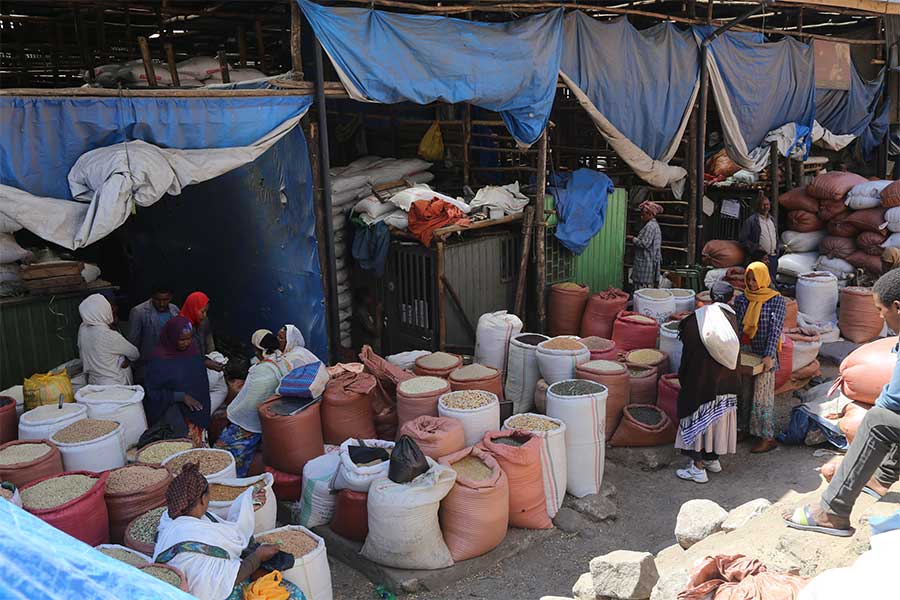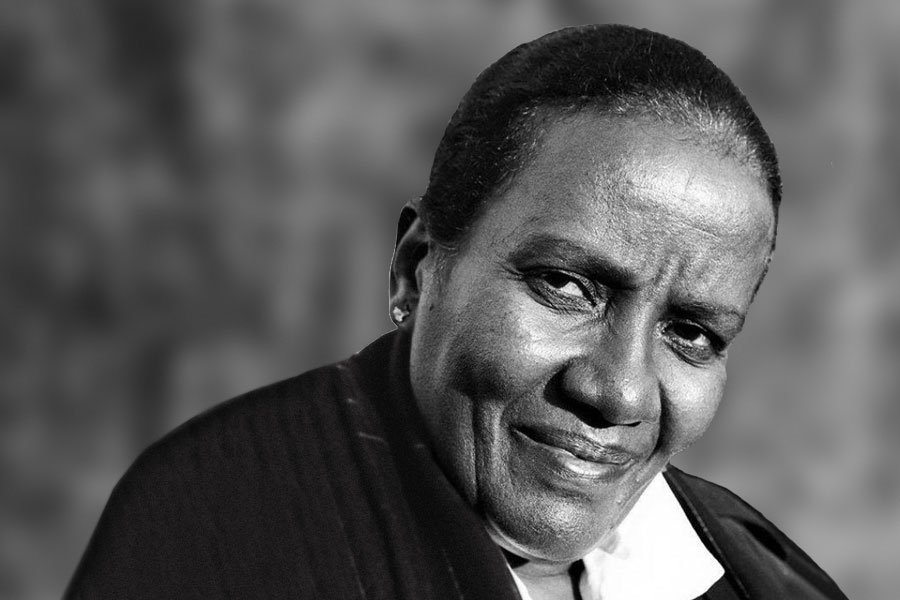
Viewpoints | Oct 03,2020
Aug 7 , 2021
By Risto Rönkkö , Kunal Sen and Stuart Rutherford
The Hrishipara Daily Diaries Project has been tracking the daily spending of 60 poor households in rural Bangladesh for the last six years. Analysis of the data collected – especially the changes to spending patterns that have occurred during the pandemic – reveals four areas where policymakers should step in, write Risto Rönkkö and Kunal Sen, research assistant and director at UNU-WIDER, respectively, and Stuart Rutherford, founder of Shohoz Shonchoy, a pro-poor microfinance provider.
Even as rich countries begin to glimpse the light at the end of the pandemic tunnel, developing countries are struggling to contain COVID-19. But there are important lessons from the past year that can help governments to devise more effective policies and programs to support their poorest residents amid continued outbreaks and lockdowns.
One valuable source of such lessons is the Hrishipara Daily Diaries Project (HDDP), which has been tracking the daily financial transactions of 60 poor households in rural Bangladesh for the last six years. Analysis of the data collected – especially the changes to spending patterns that have occurred during the pandemic – reveals four areas where governments should step in.
First, policymakers should ensure access to emergency cash. The rural poor are no strangers to shocks to their livelihoods. Droughts and floods are recurrent features of their lives, as are serious illness and job losses. But they usually have some access to lifelines: they can tap into family-based mutual-aid networks or borrow from microfinance institutions, money lenders, and friends and family.
That was not true during the COVID-19 pandemic. Restrictions on movement meant that households could not visit extended family to seek financial support. And even if they could, with everyone’s livelihoods squeezed at the same time, friends and family often had nothing to offer.
Harsh lockdowns in many places also forced microfinance providers and other financial institutions to close, preventing households from borrowing or even withdrawing their savings. The 60 Bangladeshi households in the HDDP study halted almost all financial transactions during the government-imposed lockdown.
This highlights the urgent need for large-scale unconditional cash transfers from the state, disbursed directly to the poor with minimal paperwork. A crisis of this magnitude is no time for fiscal rectitude.
Second, poor people’s capacity to exercise agency and entrepreneurial spirit should be supported. The HDDP households were agile and resourceful in their response to the COVID shock, and showed impressive money-management skills.
Sometimes this took an entrepreneurial form. For example, Samarth, a farmer who grows crops and rears dairy cows on a tiny parcel of land, quickly recognised that barriers to road transport were driving up prices of goods from the capital, thereby driving down the prices of local produce that were usually exported. Thus, Samarth bought produce from desperate local farmers at very low prices and sold it at a temporary street market he set up inside Hrishipara. Local people, confined to their neighbourhoods, provided the demand, and Samarth ended up with a major boost to his daily income during lockdown.
Policymakers rarely account for such entrepreneurial instincts in devising programmes to support the poor. This should change, with policies that encourage and reward these instincts – and improve poor households’ ability to harness them. For example, low-income households could be brought into consideration when devising “ease of doing business” regulations.
The private sector also has a role to play. In particular, the financial sector should develop flexible products that enable poor people to take advantage of opportunities that come their way. Of course, this also requires that governments ensure uninterrupted access to financial services during lockdowns.
Third, the poor need generous food aid, especially during lockdown. Even under the most difficult of circumstances, the HDDP subjects found ways to put food on the table, but at the cost of drastic cuts in other expenditures. Our analysis shows a sharp reduction in recurrent household expenditures other than food in the first month of lockdown (April 2020). Moreover, it was only in October – several months after lockdown ended – that those expenditures returned to pre-pandemic levels.
Finally, low-income households’ cash reserves need to be protected. Most of the HDDP subjects kept some cash at home for emergencies. The COVID-19 pandemic – and especially the lack of access to savings – meant that they kept those reserves to buy food and meet other basic needs.
Government and the financial sector should find ways not only to help secure these home-based reserves but also to make it easier for the poor to replenish them. Expanding the scope of cash disbursements, and making delivery more efficient, is vital, as is keeping mobile-money agents open during crises.
The Hrishipara diaries show that, during COVID-19 lockdowns, the poor had to fend mostly for themselves. Thanks to their ingenuity, money-management skills, personal networks, and past crisis planning, they managed to survive. But they also had to make great sacrifices. As governments devise strategies to support the poor not only during COVID-19 lockdowns but also in future crises, they should reflect on what happened to the HDDP households during the pandemic so that, next time, such sacrifices will not be needed.
PUBLISHED ON
Aug 07,2021 [ VOL
22 , NO
1110]

Viewpoints | Oct 03,2020

Life Matters | Nov 02,2019

Agenda | Dec 28,2019

Radar | Apr 16,2022

Life Matters | Aug 03,2019

Viewpoints | Dec 26,2020

Fortune News | Dec 19,2020

Obituary | Mar 21,2020

Viewpoints | Jul 05,2025

Agenda |

My Opinion | 131970 Views | Aug 14,2021

My Opinion | 128359 Views | Aug 21,2021

My Opinion | 126297 Views | Sep 10,2021

My Opinion | 123912 Views | Aug 07,2021

Dec 22 , 2024 . By TIZITA SHEWAFERAW
Charged with transforming colossal state-owned enterprises into modern and competitiv...

Aug 18 , 2024 . By AKSAH ITALO
Although predictable Yonas Zerihun's job in the ride-hailing service is not immune to...

Jul 28 , 2024 . By TIZITA SHEWAFERAW
Unhabitual, perhaps too many, Samuel Gebreyohannes, 38, used to occasionally enjoy a couple of beers at breakfast. However, he recently swit...

Jul 13 , 2024 . By AKSAH ITALO
Investors who rely on tractors, trucks, and field vehicles for commuting, transporting commodities, and f...

Jul 5 , 2025
Six years ago, Ethiopia was the darling of international liberal commentators. A year...

Jun 28 , 2025
Meseret Damtie, the assertive auditor general, has never been shy about naming names...

Jun 21 , 2025
A well-worn adage says, “Budget is not destiny, but it is direction.” Examining t...

Jun 14 , 2025
Yet again, the Horn of Africa is bracing for trouble. A region already frayed by wars...

Jul 6 , 2025 . By BEZAWIT HULUAGER
The federal legislature gave Prime Minister Abiy Ahmed (PhD) what he wanted: a 1.9 tr...

Jul 6 , 2025 . By YITBAREK GETACHEW
In a city rising skyward at breakneck speed, a reckoning has arrived. Authorities in...

Jul 6 , 2025 . By NAHOM AYELE
A landmark directive from the Ministry of Finance signals a paradigm shift in the cou...

Jul 6 , 2025 . By NAHOM AYELE
Awash Bank has announced plans to establish a dedicated investment banking subsidiary...